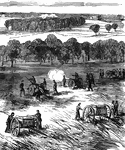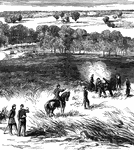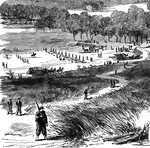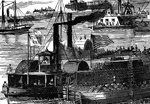Clipart tagged: ‘June 26th 1862’

Valley of Chickahominy
"Valley of the Chickahominy, looking southeast from the vicinity of Mechanicsville, the scene of the…

Valley of Chickahominy
"Valley of the Chickahominy, looking southeast from the vicinity of Mechanicsville, the scene of the…

Valley of Chickahominy
"Valley of the Chickahominy, looking southeast from the vicinity of Mechanicsville, the scene of the…

Valley of Chickahominy
"Valley of the Chickahominy, looking southeast from the vicinity of Mechanicsville, the scene of the…

Burning of the White House
"Burning of the White House- the Federal troops, by command of General McClellan, abandoning their position…
Burning of the White House
"Burning of the White House- the Federal troops, by command of General McClellan, abandoning their position…

